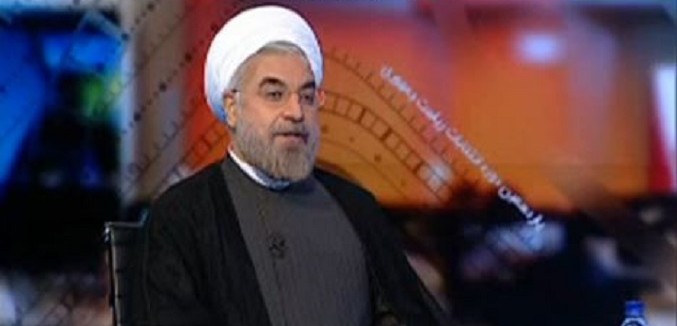Recent weeks have seen foreign policy analysis to the effect that further pressure on Iran ought not be imposed, because the regime may soften its stance in nuclear negotiations after the upcoming June elections. The eight hardline presidential candidates allowed to run in the election – some 670 other candidates were purged last week – are campaigning in the opposite direction:
The nuclear issue has been “used to discredit rivals” in the early days of the campaign, said Dina Esfandiary, an Iran analyst at the International Institute for Strategic Studies. Jalili’s camp is trading on its hardline attitude to the nuclear program. In the last five years, Jalili, seen as rigidly devoted to Iran’s Islamic revolutionary ideals, has overseen a hardening stance in talks with world powers. “Our national interests and security were tarnished and hurt,” said Ali Bagheri, Iran’s deputy nuclear negotiator who is supporting Jalili’s campaign, in a recent speech, referring to [Hassan] Rohani’s tenure under reformist President Mohammad Khatami.
Rohani himself took to television to defend his record in promoting Iran’s nuclear program.
Iranian leaders have long emphasized that the upcoming June election will not alter the country’s stance in negotiations related to its atomic program, which in any case is set by Iran’s unelected Supreme Leader Ayatollah Ali Khamenei. The elimination of any candidate even marginally distant from Khamenei’s past policies is being taken as a signal that he will not use the election as an opportunity to soften Iran’s position.
The signal has not been lost on defense officials in Israel. Speaking yesterday at a forum hosted by The Israel Project, Israel’s Minister of Intelligence and Strategic Affairs Yuval Steinitz emphasized that the election “is going to change nothing.”
He added: “First, the real rulers of Iran are the religious leaders. Second, if you check the candidates themselves, it will make no difference.”
Steinitz recalled that a decade ago, then-president Hashemi Rafsanjani – a reputed “moderate” – said Iran could afford to lose several million people in a nuclear war for the purpose of advancing Islam, while a Western-style democracy like Israel could not.
A nuclear-armed Iran, Steinitz warned, would be immeasurably more dangerous than even North Korea. “The scale of the Iranian nuclear project… is several times bigger than that of North Korea,” he said. “After they produce the first nuclear bomb, it will take just a decade or two to produce dozens or hundreds of them.”
He added that the authoritarian regimes of Tehran and Pyonyang are fundamentally different in nature.
“The goal of North Korea is to enhance the survivability of its authoritarian regime; the ambitions of Iran are totally different – they are global,” Steinitz said. “Iran has been very explicit for the last 10 years about changing the balance of power between Islam and the West.”
“If I can evaluate the mindset of Iranian leaders, it’s global Islamic hegemony. This sounds crazy to us, but they are very rational in achieving that goal,” he said. Iran must be made to feel the cost of building a bomb far outweighs its benefit. “Even for the Iranians it is very difficult to convince oneself to get something for nothing.”
Maj. Gen. Ido Nechushtan, a former Israel Air Force chief, said the possibility of a catastrophic nuclear confrontation in the Middle East is even higher than during the U.S.-Soviet Cold War.
“The political culture of Middle East is based on mistrust. Even during Cold War there was a dialogue between President Kennedy and Chairman Khrushchev. The chance for miscalculation in the Mideast is far greater,” Nechushtan said. “Given the level of mistrust, hatred and ideology you have here – it’s not something one can manage or balance. And I don’t recommend you try.”
[Photo: Lenziron Newsvideo / Youtube]




